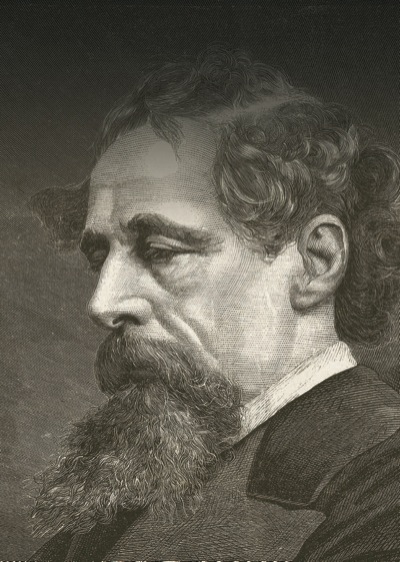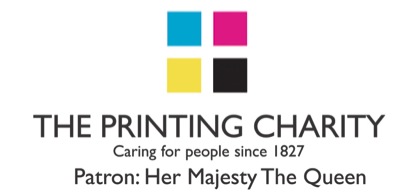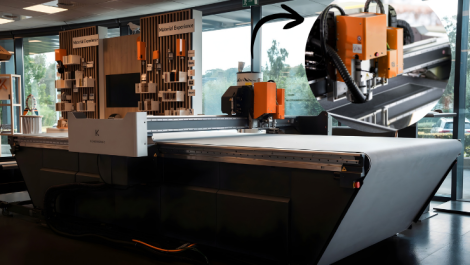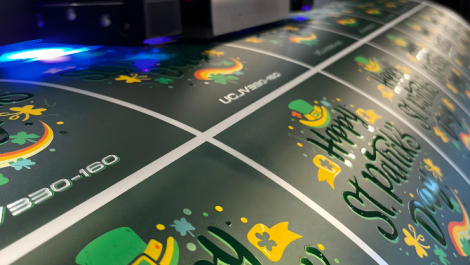The Printing Charity is the UK’s second-oldest occupational charity, set up in 1827 by a printer, John King, writes chief executive Stephen Gilbert.
When it was first established in 1827, the Printers’ Pension Society, now The Printing Charity, aimed to ‘grant Pensions in the decline of life to such infirm and afflicted Journeyman Printers and their Widows as may be thought most deserving’. The process to be selected as the ‘most deserving’ was not for the faint-hearted.
Applicants nominated for election as pensioners had to attend a public meeting and present their case. Those in the printing industry and members of the general public who contributed to the pension fund would then vote for those they deemed most deserving. Details of those who put themselves forward, including their age, address, financial circumstances and number of votes received, were then published in the charity’s Annual Yearbooks, which are archived today at St Bride Library in Fleet Street.
In 1865, the charity merged with two other printing industry charities, the Almshouse and the Orphans’ Asylum, to become the Printers’ Pension, Almshouse and Orphans’ Asylum Corporation.
That same year, Queen Victoria, our first Royal Patron, granted our Royal Charter. In 1972, our current Royal Patron, Queen Elizabeth II, granted a supplemental Charter, changing the name to the Printers’ Charitable Corporation. In 2010, we became The Printing Charity, to help us reach out to more people and their families in today’s printing, publishing, graphic arts and allied trades.
Every monarch since Queen Victoria has been our patron, while members of the Royal Family, literary, political and industry figures, have served as our Presidents, including Charles Dickens (twice), Benjamin Disraeli, Gladstone, HRH The Duke of Edinburgh and HRH Prince Charles.
 Charles Dickens was twice the president of what became The Printing Charity
Charles Dickens was twice the president of what became The Printing Charity
People we help
While our name, the terminology we use, and our financial grants have changed since 1827, our original ethos of helping individuals and their families remains at the heart of everything we do.
We have extended our remit to help more people so that now, whatever a person’s job is or was for three years in any organisation that produces a printed output – printing, publishing, operating presses, driving, cleaning, advertising, photography, journalism, graphic arts, making ink, recycling paper – we are there to help, including dependent family members. We no longer give pensions. Instead, we give financial support under our Helps cornerstone. This includes regular financial assistance (RFA) of up to £25 per week, which can be used for any reasonable purpose. Our one-off grants of up to a maximum of £800 are to help pay for things like home adaptations, new cookers, washing machines, and motorised scooters.
We help with care and residential home ‘top-up’ fees, training costs for people with special needs, independent living help, transport costs to visit sick relatives, respite breaks for carers and cared for people, and retraining courses for people who have been made redundant from our industry.
Our homes
Our almshouses have long gone. Today we own and manage two purpose-built, sheltered apartment schemes providing independent living for people who have retired from the industry.
Southwood Court in Basildon, Essex, has 40 self-contained apartments, and Beaverbrook House in Bletchley has 32 apartments. Both schemes have an on-site Home Manager seven days a week and the apartments have their own kitchen and en-suite facilities, off-road parking, communal conservatory and gardens, 24-hour CCTV and an emergency on-call system. We support people of all ages and have expanded the age profile we help through initiatives like our pilot with The Prince’s Trust to help young people aged 18 to 30 years set up their own businesses in print and graphic design.
Since 2003, we have sponsored the annual Print Futures Awards, along with Unite the Union and the BPIF. The Awards of up to £1500 each are open to people aged 16 to 30 years to undertake part- or full-time courses for a job in printing, publishing and graphic arts. Applications are particularly welcome from people working in the industry who would like to update their skills.
Changing technology and a challenging economy make the charity just as relevant in the 21st century as in the days when there was no state support for printers and their families who had fallen on hard times.
 Chief executive, Stephen Gilbert
Chief executive, Stephen Gilbert
Precious financial support
Following graduation, Julia worked for ten years in book publishing as an editor and proof-reader.
She was thrilled to land a publishing job in France but, when she developed health problems, she had to give the job up and return to the UK. To help manage her long-term health problems, Julia was advised she would need medical equipment costing £3000. Needing help with funding, Julia looked online for charities that might assist and applied to The Printing Charity.
The charity was unable to pay for the medical equipment, but was happy to help Julia with Regular Financial Assistance (RFA). At the time, she was struggling to live and had to rely on help from her parents.
‘When the charity phoned me with the news of financial help, I burst into tears,’ said Julia. ‘I’m now working part-time, but will never be able to work full-time again. The money helps buy food and pay the bills. The additional one-off payments the last three years to help with winter fuel bills have also been very welcome. The charity’s financial support is precious to me.’
Please tell people about The Printing Charity, your industry’s charity that:
• helps individuals and their families
• helps people of all ages
• wants to help more people





